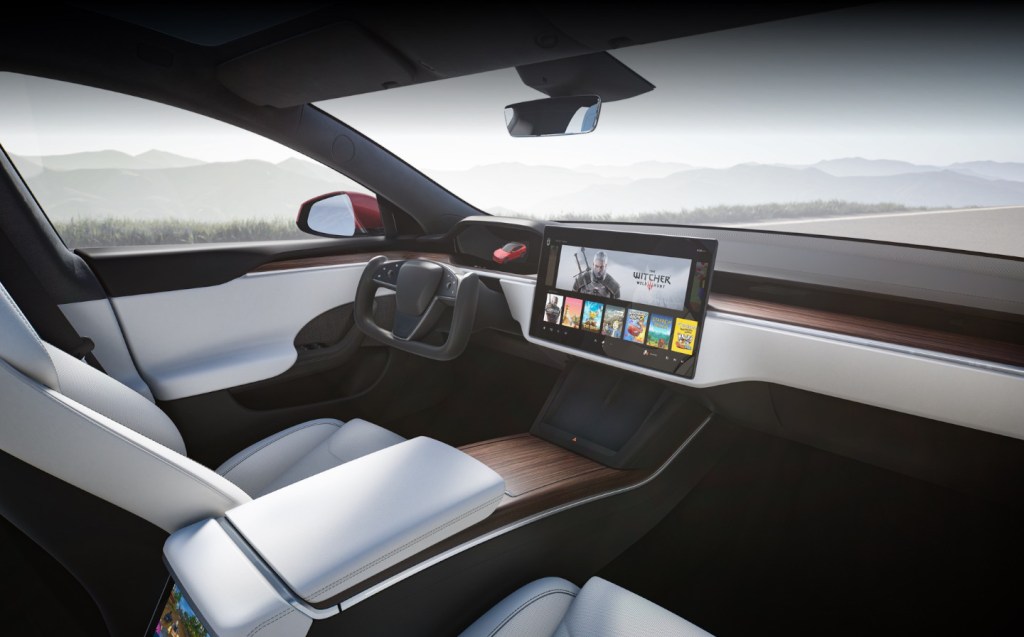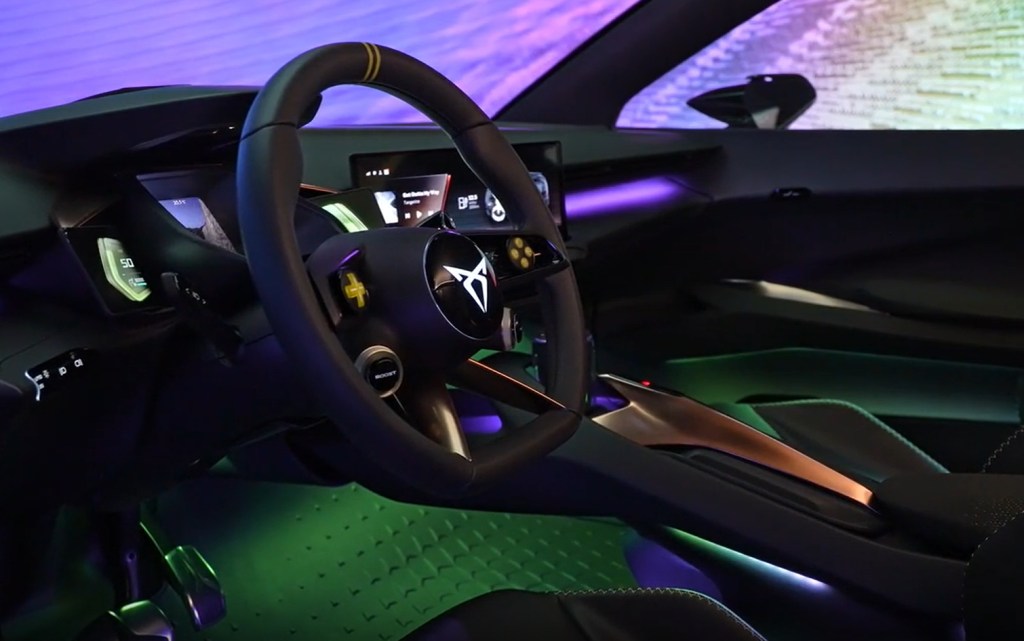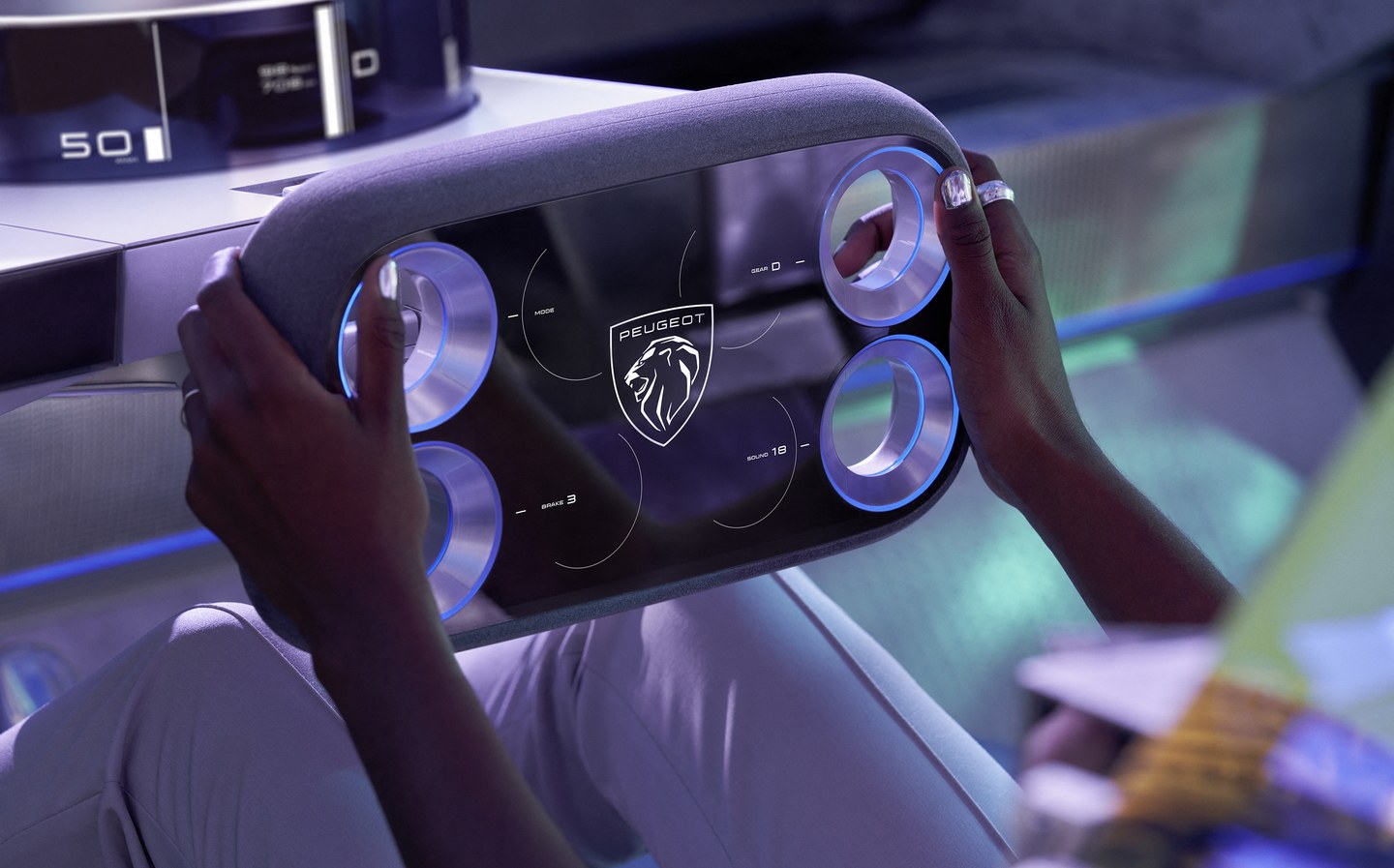Opinion: Two of the latest car trends ... and the one that needs to die
The old yokes are not the best
Yesterday at the Consumer Electronics Show (CES) in Las Vegas, Sony and Honda revealed their jointly-produced electric prototype and proudly declared that, inside the Afeela-branded car, they “intend to provide best-in-class entertainment for our customers — movies, games and music.”
Combined with claimed Level 4 Autonomy (yeah, right), the Afeela saloon won’t just be a means of getting from A to B, but a cinema, sound system and PlayStation on wheels — an entertainment hub as much as a means of transport.



Despite being a keen driver, I don’t have any major objections to all of this. I would like a choice of movies, games and music as a passenger, and the option to partake when parked.
So I’m not writing this to rail against the idea of cars becoming something less than a connection between us and the road, or that cars should be about “the feel of the wheel in your hand” and the unquantifiable pleasure derived from hooking up one corner with another on a sweeping, undulating B-road (anyone want to go for a drive yet?).
No, instead what I’m interested in is that Sony’s apparently game-changing car (pun intended) isn’t revolutionary at all. Just ask a Tesla owner, who can already download games to their giant touchscreens. The last Model 3 I tested included a driving game that you could control via the steering wheel, which my daughter greatly enjoyed playing while we were plugged into a Supercharger.
Tesla has gone further. It has added Steam, a major online PC video game store and distribution system, to its Model X and Model S cars. That means owners can use wireless controllers to play thousands of major games, including Cyberpunk 2077, Forza and Grand Theft Auto.
Ford has said games will soon be available within its electric cars, such as the F-150 Lightning electric truck, and no doubt many other carmakers will do the same. But whether you like Tesla or not as a brand, once again it got there first.
Which brings me on to another Tesla trend-setting move: the reinvention of the steering wheel. Round is no longer cool, apparently, so cars are being fitted with aircraft-style steering yokes. They can be optioned on a Tesla Model X or S, as below, and the Afeela prototype features a very similar yoke.

When Tesla first announced it was planning to do this (for yes, it was them what [sic] led the way), I contacted the Department for Transport about the legality of such a vehicle control interface, and to my surprise a spokesperson confirmed that there are no rules against U-shaped steering wheels for use on the road.
Shortly after, Toyota-owned Lexus announced its RZ 450e, the company’s first dedicated electric car, would also be fitted with a steering yoke. The Toyota bZ4x, too, will get one.
Why, though? Steering wheels have served us very well since the late 19th century, thank you very much. Various carmakers have thought to bring back other methods — as pointed out by journalist Andrew English in a recent article on this subject for The Intercooler, in the 1990s Saab experimented with a new-style tiller system mounted in the centre console. English tried out the prototype at the time and it proved downright dangerous, by the sound of it.

Of course, Saab’s system never made production but Toyota’s yoke will, as an option for buyers. English has tested that, too, and said it was surprisingly good for low speed manoeuvring but “comes unstuck” through tightening fast corners, causing him to hit a cone, and “makes a meal” of long, fast banked corners.
The reason? Toyota’s yoke is tuned for progressive steering so that your arms don’t get “crossed up”; in other words, as you turn the yoke, the angle of the front wheels changes at an increasing rate. Full lock is less than half a turn.
Toyota’s set-up, which is “fly-by-wire” so the yoke has no physical connection to the wheels, is clearly not ideal (maybe it’ll be further tuned to make it less jittery at high speeds), but Tesla’s yoke is potentially worse. It is physically connected to the front wheels and videos online show that multiple turns are required lock-to-lock.
With a round steering wheel, it doesn’t matter whether it is turned 45 degrees, 90 degrees or 180 degrees — you can feed it through your hands and always find a place to grip. With a Tesla yoke you could end up reaching for wheel and find air instead. I’m not suggesting it’s dangerous (though some might) — just sub-optimal.
Alarmingly, Peugeot is now on the non-round steering wheel trail. Its Inception concept, revealed overnight, features a steering input device called the “Hypersquare” … which is actually a rectangle. It features four holes through which drivers can place their fingers and then operate the touchscreen in the centre of the wheel with their thumbs, as they would a smartphone.

A rectangle is arguably better than a yoke, as it at least has a uniform shape and has a top to grab, rather than empty space, but I fail to see the advantages over a circular wheel.
Bringing us full circle, Peugeot’s Hypersquare is inspired by video game controllers, the company said. Clearly steering wheels are becoming less about driving and more about being an interface between the vehicle owner and their in-car entertainment systems.
I need to mention Cupra here, too, as last year we were shown the Urban Rebel electric city car, which includes PlayStation-style controller buttons on its steering wheel (which, mercifully, is round … though with a acceptable flat bottom to ease entry and egress).

Presumably this will help with in-car gaming as much as presenting the usual stereo and cruise control buttons in a way that will appeal to gamers. The youth appeal extends to a “share” button so that dashcam footage can by uploaded to the internet while on the move — candy for the TikTok generation.
What we have here are two major trends for the automotive sector, with some considerable overlap. But while I would put money on video games becoming a major and sustained part of in-car entertainment for all car brands over the coming years, I’ll put even more money on steering yokes dying a death before long. They’re stupid, unfit for their purpose and car buyers (and possibly regulators) will tire of them.
My appeal to carmakers, then: make steering controllers fly-by-wire by all means, so that you can easily design and build cars for markets where customers drive on the left or right, but for pity’s sake, make them circular. Some of us still like to drive, and the best shape for the steering input device is a wheel.
Tweet to @wdron Follow @wdronRelated articles
- After reading this opinion piece on video games and steering yokes in cars, you might like to read about the cars that have appeared in the most video games
- Renault R5 Turbo 3E is a wild video-game-inspired electric drift machine
- Tesla steering yoke demonstration drives criticism on social media
Latest articles
- F1 2025 calendar and race reports: The new Formula One season as it happens
- Zeekr 7X AWD 2025 review: A fast, spacious and high tech premium SUV — but someone call the chassis chief
- Denza Z9GT 2025 review: Flawed but sleek 1,062bhp shooting brake from BYD’s luxury arm
- Extended test: 2024 Renault Scenic E-Tech review
- Best-selling cars 2025: The UK’s ten most popular models of the year so far
- Audi A6 Avant 2025 review: Trusty executive estate ticks expected boxes, and there’s still a diesel option
- Keir Starmer eases pressure on carmakers to sell EVs in response to ‘global economic headwinds’
- Ferrari 12Cilindri Spider review: Heady blend of traditional and futuristic becomes even more intoxicating after lid is removed
- Skoda reveals its fastest accelerating production car yet: the electric Elroq vRS














